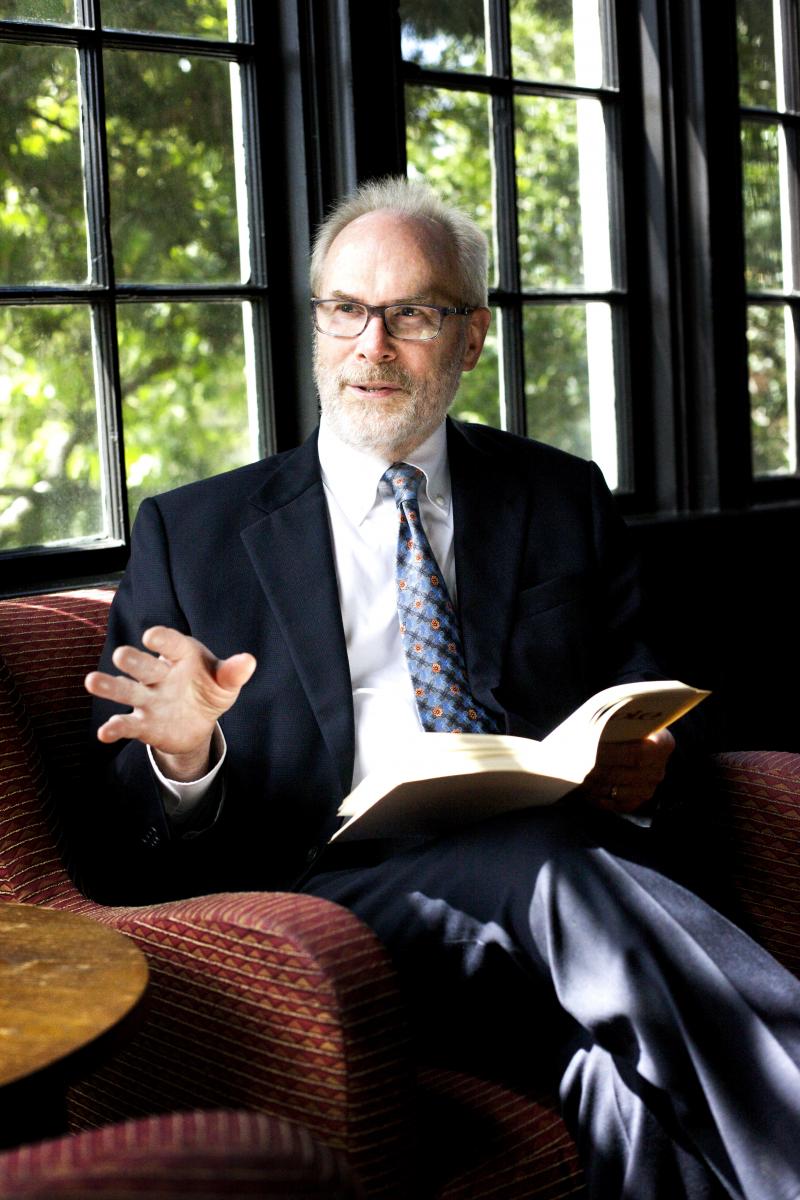From the Spring 2016 issue of Currents, View PDF
 In this and other recent issues of Currents, we have celebrated the strengthening embrace of interreligious education at the Graduate Theological Union, as well as our ongoing addition of new religious partners here in Berkeley. You can see this emphasis in the GTU’s redesigned doctoral curriculum, which features more than thirty different concentrations, including many designed to enhance interreligious and interdisciplinary work. You can see it in the establishment of our new Center for Dharma Studies, which brings the study of Hinduism, Jainism, and Indian Buddhism to the GTU. (See pages 12-13.) The GTU has recognized that in today’s increasingly pluralistic world, more and more students are pursuing scholarship that explores the connections between two or more religious traditions, or seeking to ground their in-depth study of a particular tradition in a multi-religious environment.
In this and other recent issues of Currents, we have celebrated the strengthening embrace of interreligious education at the Graduate Theological Union, as well as our ongoing addition of new religious partners here in Berkeley. You can see this emphasis in the GTU’s redesigned doctoral curriculum, which features more than thirty different concentrations, including many designed to enhance interreligious and interdisciplinary work. You can see it in the establishment of our new Center for Dharma Studies, which brings the study of Hinduism, Jainism, and Indian Buddhism to the GTU. (See pages 12-13.) The GTU has recognized that in today’s increasingly pluralistic world, more and more students are pursuing scholarship that explores the connections between two or more religious traditions, or seeking to ground their in-depth study of a particular tradition in a multi-religious environment.
The GTU’s increasing focus on interreligious scholarship reflects a national educational movement that is surfacing at the undergraduate level as well. There are at least 130 colleges and universities that address interfaith or interreligious education through the creation of minors, certificates, and other innovative programs that engage students and faculty in the broad range of issues emerging from today’s complex societal context.
I recently learned of a new undergraduate course at Dominican University in Illinois that is focused on interfaith education. The goals of this course, designed in cooperation with the Interfaith Youth Core and its director, Eboo Patel, speak to the challenges and importance of interreligious work. These goals include gaining religious literacy and appreciative knowledge of other religions; clarifying the difference between diversity and pluralism; learning how relationships and networks can be leveraged to work toward the common good; and exploring and understanding models of interfaith leadership and interfaith cooperation that have achieved significant strides in bridge-building. Increasingly, colleges and universities are offering classes that include enactment and discussion of contemporary situations that require the ability to navigate interreligious and cultural complexities and accommodate differences (For example, a class might consider the case of a group of Somali and Sudanese Muslim women who have asked their employer for time off for prayer during the work day.)
As students move through these interfaith programs and through undergraduate programs that offer introduction to non-Christian religions, some will choose to pursue graduate study, and the GTU is increasingly well positioned to provide that next stage of education. In fact, many GTU graduates are the creative instigators and leaders of these undergraduate programs—affirming that for decades the GTU has been developing scholars and leaders with the capacity to think religiously, educationally, and culturally about critical issues.
All too often we are seeing in the public domain the damage, fear, and conflict that is being set loose by ignorant and distorted characterizations of religion. The sad truth is that it may take considerable time and effort to extract such dangerous misinformation from the public’s consciousness. The GTU is at the forefront of preparing students for academic, religious, and nonprofit vocations in which appreciative and deep knowledge of multiple religions is essential to healthy and effective leadership.
